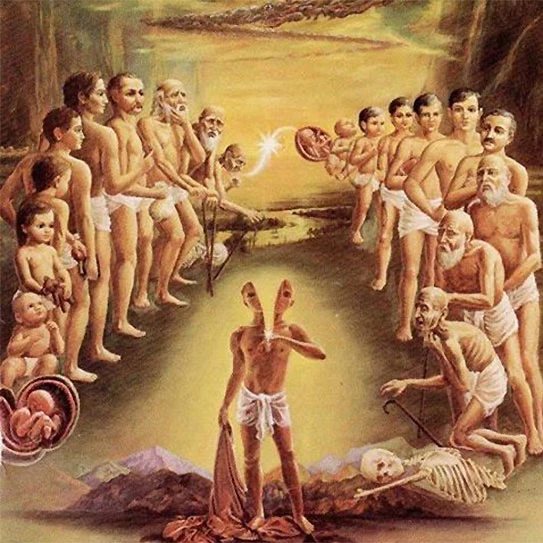
Karma and reincarnation are two profound spiritual concepts that have influenced cultures and belief systems for thousands of years. Found in Hinduism, Buddhism, Jainism, and even some Western philosophies, these principles shape our understanding of life, death, and the journey of the soul. While often misunderstood, karma and reincarnation offer deep insights into human existence, ethics, and personal growth. Here are five essential things to know about these fascinating concepts.
1. Karma Is Not Just About Punishment and Reward
Many people misunderstand karma as a simple system of punishment and reward—”good things happen to good people, and bad things happen to bad people.” However, the law of karma is much more complex. It is the principle of cause and effect that governs the universe. Every action, thought, and intention creates energy that influences future experiences.
In Hindu and Buddhist philosophy, karma is neutral; it’s not about cosmic justice but about balance and consequences. If someone acts with kindness, they generate positive karma, which can lead to beneficial experiences in the future. Conversely, harmful actions can lead to suffering. However, karma is not immediate; it accumulates over lifetimes, shaping one’s circumstances in the present and future.
Understanding karma as a learning mechanism rather than a punishment system encourages personal responsibility. It teaches us that we are the architects of our own destiny, and our actions have long-term effects on our spiritual evolution.
2. Reincarnation Is a Cycle of Learning and Growth
Reincarnation is the belief that the soul is reborn into different bodies across multiple lifetimes. This cycle, known as samsara (cycle of rebirth), continues until the soul reaches enlightenment or liberation (moksha in Hinduism, nirvana in Buddhism).
Each lifetime provides opportunities for growth, learning, and self-improvement. The experiences and challenges one faces are often influenced by past karmic actions. For instance, someone who misused their power in a previous life may be reborn into circumstances that teach humility. Similarly, someone who has cultivated great wisdom may be reborn with an innate understanding of spiritual truths.
Reincarnation isn’t just about past lives; it also gives hope for future lives. If one doesn’t achieve enlightenment in this lifetime, they have infinite opportunities to evolve spiritually. This perspective encourages patience and perseverance in personal development.
3. Your Present Life Reflects Past Karmic Actions
According to the doctrine of karma and reincarnation, the circumstances of our present life—our family, health, talents, struggles, and even relationships—are influenced by past actions from previous lifetimes. This is known as prarabdha karma, or karma that has ripened and manifests in the present life.
This concept does not mean people are doomed by past mistakes. Rather, it offers a perspective that every challenge is an opportunity for growth. By responding wisely and ethically to life’s situations, one can shape a better future—both in this life and beyond.
Additionally, while past karma influences current experiences, free will still plays a crucial role. Every new action creates fresh karma (agami karma), shaping what lies ahead. This means that no matter one’s past, they have the power to create a better future through conscious choices and self-improvement.
4. Liberation (Moksha/Nirvana) Is the Ultimate Goal
While karma and reincarnation explain the cycles of birth and rebirth, the ultimate spiritual goal is to break free from this cycle and attain liberation. In Hinduism, this is known as moksha, while in Buddhism, it is called nirvana.
Liberation occurs when an individual transcends their attachments, desires, and ignorance. It is a state of pure awareness, free from suffering and illusion. Many spiritual traditions teach that enlightenment can be achieved through self-discipline, meditation, wisdom, and compassionate action.
Some believe that certain enlightened beings, known as bodhisattvas in Buddhism, choose to reincarnate voluntarily to help others reach enlightenment. These individuals embody selflessness and service, continuing to guide humanity toward liberation.
5. Karma and Reincarnation Teach Personal Responsibility and Compassion
One of the most profound teachings of karma and reincarnation is the importance of personal responsibility. Since every action has consequences, individuals are encouraged to act ethically, cultivate kindness, and seek wisdom. Unlike belief systems that place fate in the hands of an external deity, karma emphasizes that we create our own destiny.
This understanding also fosters compassion. If someone is suffering, rather than judging them, one can recognize that their experiences are part of their karmic journey. Similarly, instead of feeling envy toward those who seem fortunate, one can understand that they, too, are reaping the effects of their past actions.
Moreover, karma reminds us that our current actions shape our future lives. If we want to experience peace, love, and prosperity, we must cultivate those qualities within ourselves. This belief encourages a proactive approach to life, inspiring individuals to take charge of their spiritual growth.
Final Thoughts
Karma and reincarnation are not just abstract spiritual ideas; they offer profound insights into life’s purpose and meaning. By understanding that our thoughts, actions, and intentions shape our future, we become more mindful of how we live. The cycle of reincarnation reminds us that life is an ongoing journey of learning, and every challenge is an opportunity for growth.
Whether one fully believes in these concepts or sees them as metaphorical truths, they provide valuable lessons in responsibility, compassion, and self-awareness. Ultimately, they remind us that we are not victims of fate but active participants in our own spiritual evolution.






